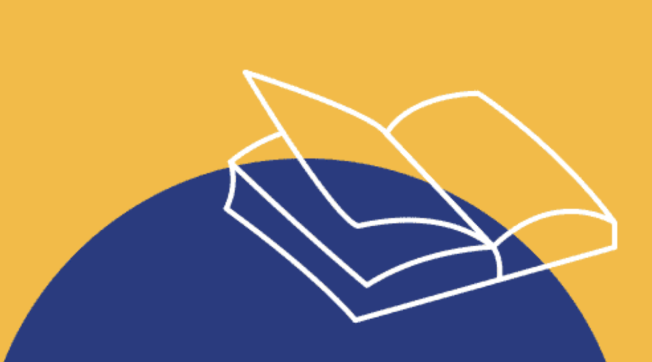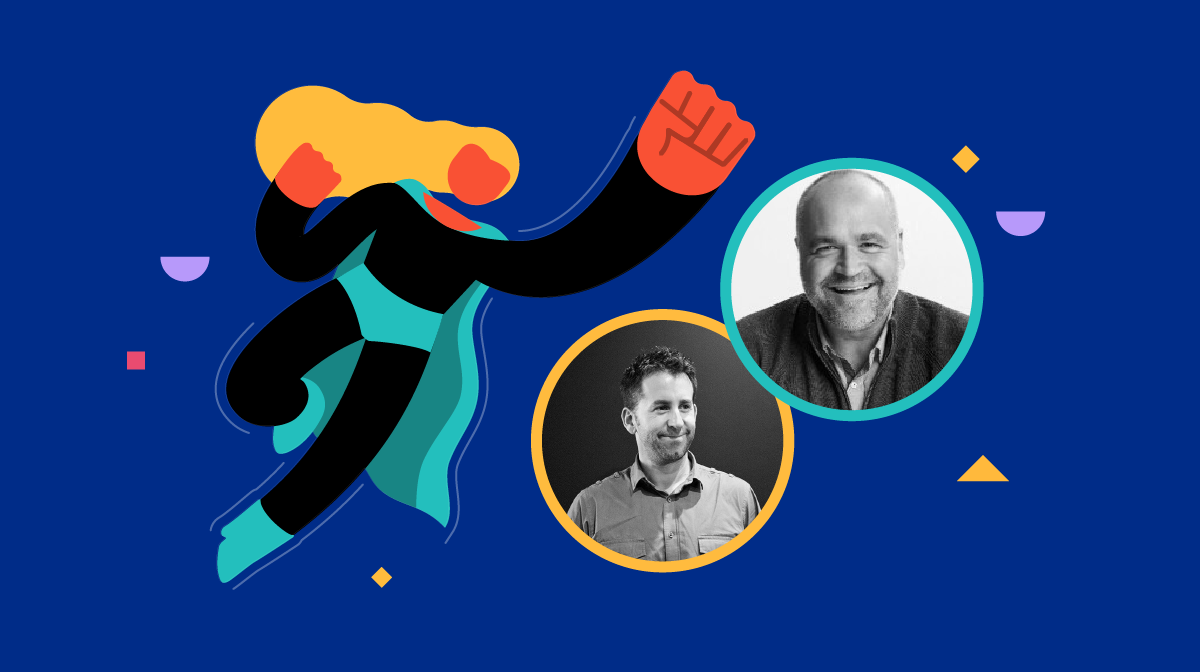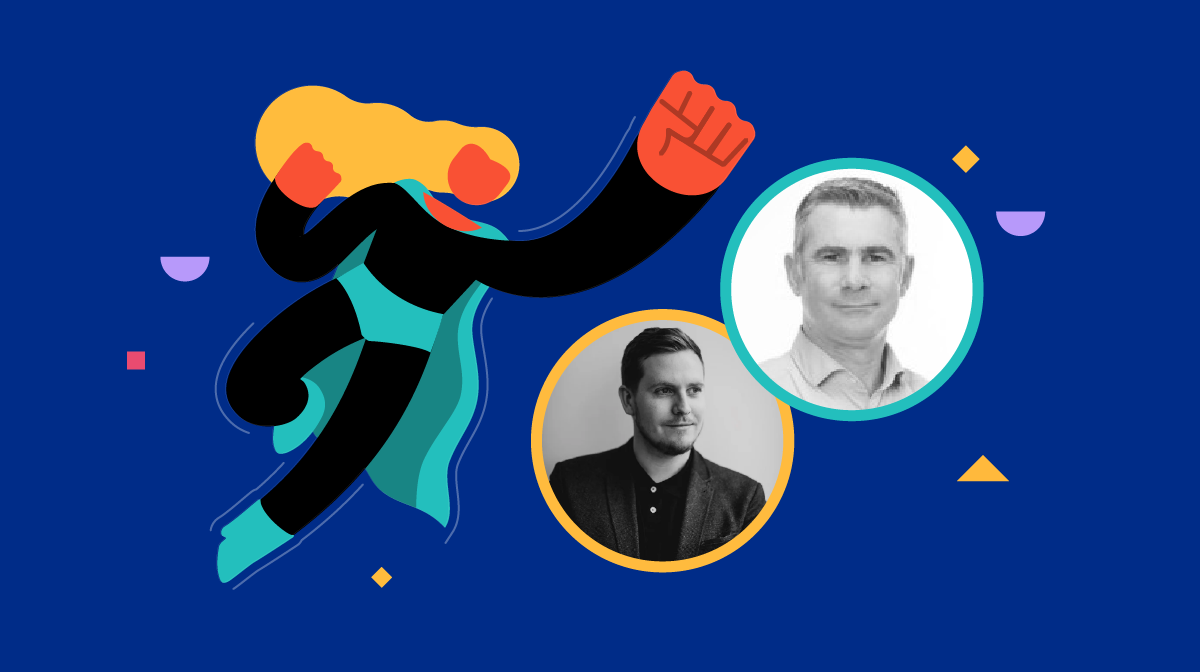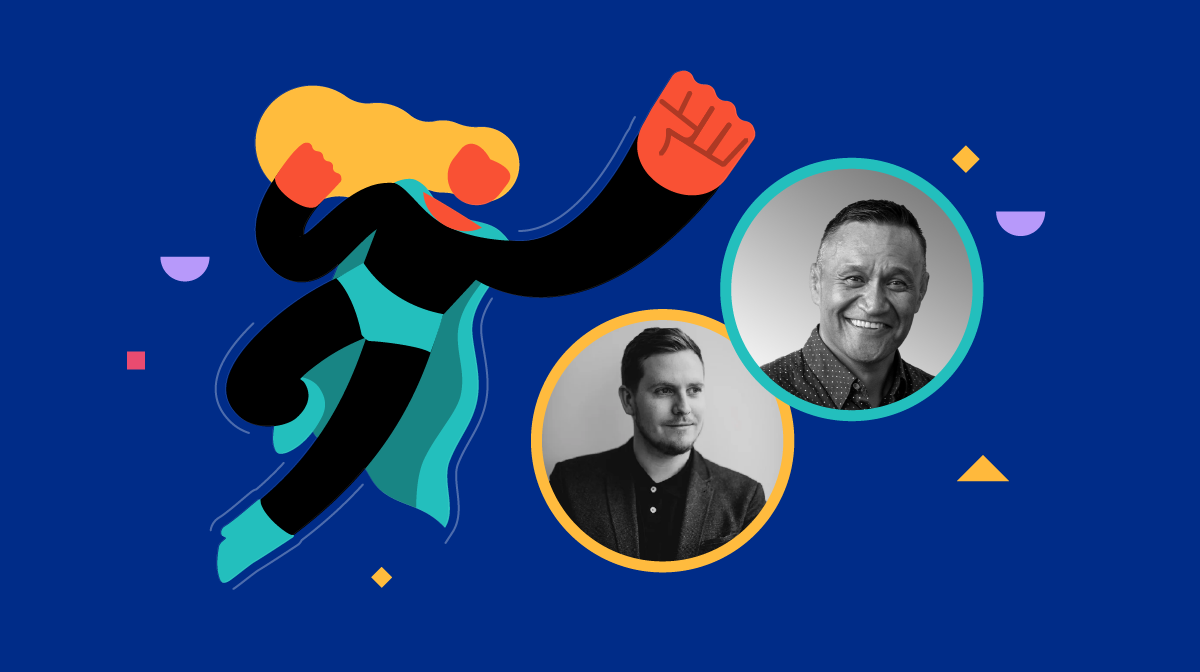Decolonising Ohu Inspire: A kōrero with Kaiwhakatere, Gemma Sides
We dialled in for a kōrero with Gemma Sides, the Kaiwhakatere for Inspire Group.
We discussed 'Decolonising Ohu Inspire' which is an internal initiative—now in it's third year at Inspire Group—which is focused on helping the organisation become better Treaty partners, and develop better, more inclusive learning for their clients.
Gemma shares the what, why and how, of Decolonising Ohu Inspire as well as sharing tips for organisations looking to embark on a similar journey.
Transcript:
Gemma Sides
Me kararia koe?
Ben Hogg
Ae. Aio ki te rangi. Aio ki te whenua. Aio ki ngā tāngata katoa. Thank you for making time to have a kōrero with me this morning. I thought it would be a really cool thing for us to maybe share with some of our customers the journey that we've been on with Decolonising Ohu Inspire. But, maybe to start us off could you give us a bit of a rundown of your history with Inspire Group and what your role is?
Gemma Sides
Sure So, Tēnā koe. I whānau mai au ki Iwikatea. I tupu ake au ki Ōtepoti. Kei Titahi Bay ahau i mahiana. Ko Nigel tōku whaiāipo. ko tahi taku tamaiti. Ko Madison āku kuru pounamu. Kei Inspire Group ahau e mahi ana. Ko Gemma Sides tōku ingoa. So yeah, Kia ora Ben I am from or born in Balclutha grew up in the mighty lands of Otipoti Dunedin and I now live in Titahi Bay in Porirua. My partner is Nigel, I am the mum to Madison, who is my my precious my precious wee princess. And I work for Inspire Group. And actually, next month will be my 12th year.
Ben Hogg
What do you get for 12 years?
Gemma Sides
Um... hopefully... actually, I got a new job title. There we go. So recently, I've had my job change to become the Kaiwhakatere, which is the navigator of Ohu Inspire or Inspire Group. Yeah, but on top of learning design, and also doing some facilitation management, some kind of a jack of all trades. Yeah, I make it work for me.
Ben Hogg
And I guess Decolonising Ohu Inspire's the thing that we're here to talk about today, which lines up with the new job title that you've got. So let's maybe just dive straight in and have a kōrero about that. I guess the easiest place to start is what is it? What is Decolonizing Ohu Inspire?
Gemma Sides
That's like a very big word. It's part of our strategy. It's our way forward. It's also kia tika, kia pono te mahi. So it's the right thing to do. And it's our duty I guess, to embed te ao Māori... not I guess... it is our duty to embed te ao Māori within the Inspire Group.
Ben Hogg
And so let's let's talk a little bit about the the naming of of Decolonising. Because for a lot of people, that's quite a scary word "Decolonizing". It's probably quite a new word for a lot of people as well. So, could you tell me a little bit more about your thought process around choosing that name for this thing that Ohu Inspire are doing?
Gemma Sides
Yeah, of course. So decolonising its nail on the head, right? We picked using that word because it is such a big word. It is a word that we wanted people to take seriously. But we also wanted to make a stand, make people think and also change people's perception around what decolonizing actually is. So, when I say we, I'm talking about Mereana who was the Marketing Manager at Inspire group, and she was part of the, I guess, the founding person with me with decolonising. We had the big kōrero around what we wanted to achieve what we wanted to change within Inspire and what we wanted to bring to the table and we were looking at the book, or we had read Imagining Decolonisation, and that was part of the instigator for that. And, I just remember when Mereana said, "What about Decolonising?" it made me stand up, right, and made me go, "...whoa, that's a big word! I'm a bit nervous, I'm not quite sure how to feel about it". And even when we took it to Dan CEO of Inspire. I was nervous to go, how would you feel about calling something Decolonising? How would you feel about throwing out such a big word that's got a big stigma, create, like attached to it. And naming our internal initiative that. And he sat on that for a couple of days as well. And it's one of those words that I think when you do look at it differently, and you do sit on it, you can go, actually this is change. This is how we're going to change. This is what we're going to change. And that was kind of the the wero that we wanted to put down as well.
Ben Hogg
Yeah, and I think using a phrase like Decolonising as part of this journey shows that you're being very deliberate about the choices that you're making. And doing something like this, which I think is really important and also for someone like me who came along and joined Inspire Droup after you guys had started this journey. It felt quite empowering. Because it is for at least for me, it was quite a scary thing to sort of step into that first, hui that I went to, and it was called Decolonising Ohu Inspire. And I thought, What am I, what am I going to expect here. And so to see the way that we've sort of, or that you have sort of embraced that term, and Dan's embrace that term, and the rest of the team have, has been quite a cool thing to see, I think one of the things that I wanted to dig into a little bit as part of this kōrero, because we have this really big, aspirational, why that better learning is life-changing. And I think one of the things that struck a chord with me, when I joined Ohu Inspire and first learned about the decolonizing sessions that we're running is it's all very well and good for businesses say that betta learning is life-changing. And that's the thing - the stake in the ground - that they're going to sort of lay claim to but... for who is the big question, right? And so when we think about learning, in a, in a typical sense that is quite westernised. And so I think, when we try and marry those two things together, we're sort of taking a step further and saying, Actually, better learning is life changing. But for it to be life changing, it's got to include everyone.
Gemma Sides
Yep, I think that's part of what we're doing, as well as this is all optional Decolonising, you can pick whether you want to be a part of the kōrero, be a part of what it is. But ultimately, as all of us as well, and we all play a key role in it. And I think as a learning designer, it's really opened my eyes to go, how can we create the resources and the learning to make Decolonising land I guess, and to actually work and making it more than a conversation, but that kind of safe space where we all bring ourselves truly to the conversation, we all add our whakaro, we're all heard, we're all able to step up, there's no right or wrong answer to things that is just a conversation where we're sharing our experiences we're learning and we're opening our minds to those different perspectives, heard from those who are tired of feeling unwell and those who are tau iwi and it is what are those experiences that have made you who you are today, and how have those experiences changed who you are, to then also change your perspective, moving forward. So there's not one thing that we do around learning within this, it is multiple different things, because we want to provide people with something that works for them, and help them create that pathway or that learning journey that works for them, be it come to a conversation, pick up a resource, go through some modules have. Do your mihi, like, challenge yourself. And it's about finding what works for you and the space in the environment.
Ben Hogg
And I think as well, that sort of, like, embracing the idea of this being a journey, because it's not something that has a start and finish, which I think is really beautiful about the way that we approach it as well. And, we get a lot of questions from clients when they when they hear that this is the type of work that we're doing internally for ourselves. And it's the common questions like the when, where, what, why, how sort of thing. And so I would love to know a little bit about the when and the why, like, when did this start? And why did it come about?
Gemma Sides
Yeah. And I kind of I find this question, it's a hard one to answer, because it's something that I guess has evolved through time and has changed, as we've changed in media. Mereana and I when we started, I guess planting the seed, that's probably the best way to look at it was in 2020. We were just noticing the conversations were changing. I know, we wanted to open people's eyes more to what was happening and the changes that were happening outside of work. And Mereana is a whine toa and wanted to share her her culture with us but wasn't sure how to do that. Or even just bring us into, I don't know, just yeah, open perspectives bring us into the world of te ao Māori. So it was about trying to find a way that we could do that. And I guess from having that first seed planted it just grew stronger and stronger to now we're coming into our third year set up our strategy for this year. But it's also about talking to people as we've gone to get advice and when Mereana left Inspire. I was like, Oh, what do I do now? Like, I'm left here on my own. But also when that's not how as I have the coffee around me the support around me to go, what next? How can we find I basically took every opportunity that I could to go, would you mind if I shared our strategy or our thoughts with you? And through doing that, and being open to share and finding someone who could awhi us along the way? We found Dion, who is now our Pouako. And that started through a conversation sharing the strategy. And then him going away thinking about it and coming back a couple of weeks later and be like, How can I help you? And through that, it really strengthened and he helped give us a pou to step up on and to just have beside us walking beside us. So we are kind of... we're walking the journey, weaving it together and figuring out how it works for us. But he brings the stream he brings the conversation, he brings a perspective, and a way that just opens for everybody or enables everybody to come into it.
Ben Hogg
I had the privilege to meet Mereana when we had a whakatau it the Wellington office. And she got up and she spoke to the team and just expressed how proud she was of the journey that we've been on. So you say that this started in 2020. So it has been quite a journey for for Inspire Group. And a lot of people that we encounter who who are interested in knowing about this, a lot of them want to know, like, where do they start? How can they get started, because it does feel like quite a big thing to take on board. Particularly for a lot of organizations in New Zealand, which are majority pakeha predominantly pakeha, or operate in quite a westernised style of thinking. But there is no one right way to start, right?
Gemma Sides
Not at all, I think it's just about starting. And that's could be the hardest step as well to take but the thing is, is that you're taking the step. And it's almost about the not yet or you know, we might not be there yet but we're at least we're starting the journey. And I think for us it was it was about starting small, and almost testing the water a little bit and just going who's interested, how can we roll? How can we make this work for everybody. But then through that testing, we got the rhythm, we got the momentum going, and then we started putting the routine in place, right? Much like a parent with a with a toddler. It's all about routines. So every Friday, fortnightly that's our Decolonising hui, that's where we come together. And we talk about what it is that we need to or want to talk about. And that can go from systemic racism, white privilege through to what do I need to do to or take to normalize when we have that?
Ben Hogg
It's the camping list. The sheets, the pillows. Yeah.
Gemma Sides
It's hard to know which conversation was harder. But it's putting those small steps on having someone I guess, to take the rakau as well and to lead it and to just be that kind of the voice. And to keep going let's bring it together. Let's have this and let's let's have a wee quiz because we love a quiz at Inspire Group. So it was what quizzes can we find what we are Oh, can we put down for Te Wiki o Te Reo Māori? How can we start growing things just slip step by step? How can we normalize using te reo? How can we just yeah, how can we just make those small steps that grow bigger and bigger and bigger? And I guess from that we have those fortnightly conversations. We have quizzes we have what last month or last quarter, it was mihi practice this month it's karakia practice it's defining what our tikanga is. And it's not saying that we're putting everything that we did prior to 2020 out the door. That's not it at all. It's how do we weave te ao Māori with te ao Pakeha to create that better space that works for us... and works for all of us.
Ben Hogg
And I think a key thing is one of the things that you said earlier around how we get this to work for us. Because it's not a one size fits all thing. And I think it's probably fair to say and you'd know this better than I would but that we are starting to see, now, this sort of naturally trickle down into not just the work that we're doing internally with ourselves, but the work that we're doing for our clients as well.
Gemma Sides
Yeah, yeah. And I think even just how we interact with each other, I mean, I look at our company values and all of our company values are underlined are achieved through manaakitanga achieved through bringing tikanga into things and that helps us have conversations and helps us I guess, push the boundaries a bit more and challenge our clients with aroha and with manaakitanga around their te ao Māori strategy around how they're bringing te ao Māori into their learning into their whare, into their tari. But also how are they aligning Te Arawhiti because that's a big thing as well and the cultural competencies, especially if they're given Government department that they need to be doing. But how do we do it in a way that works with the organisation? And if they're not yet cool? How can we support them to move them forward?
Ben Hogg
And for anyone that's not familiar, could you give us just a really brief rundown of what the Te Arawhiti framework actually is, because I know that we're using it more and more now in our own strategy,
Gemma Sides
I guess, Te Arawhiti is their cultural competency framework as as kind of that mandated way or their how government departments are expected to on te tiriti. And that outlines that for and there you can check it on their website, it's all there easy to, to see and break down... or it is broken down.
Ben Hogg
So I guess fast forwarding now to where we're at now, because we've just launched the strategy for this coming year. It's part of Matariki in the business, but Matariki is also a time for reflection. So what's what's one of the things that you're most proud of, from this journey?
Gemma Sides
I think each and every person at Inspire Group, I think everyone has stepped up and brought what they need to to this and they've grown and changed and it's "e poho kereru", I'm as proud as a kereru my chest all puffed up. And I love that saying because I love the visual that goes with it. And but everyone has got something different out of it. And I said it before we're whānau. And I think that's something that we possibly wouldn't have got without this. Yes, we were workmates. And yes, we hang out we have a good time. But now there's there's that bigger connection because whanaungatanga is a big part of what we do. Yes. So we leave the briefcase and we bring the biscuits, and we have a chat about who we are first and what we're up to and then we'll get into the mahi. So I think that's proud. I think I'm also proud of the fact that we are able to take on our processes our way of doing things and park them if we need to, or change them and flex them and change them to fit our clients to fit us to just fit the feel of what needs to happen in that time. And almost go really Oh, like wananga styles, right? It's if it needs to take longer, it will take longer. If we go off on this tangent, that's cool. Let's go off on this tangent. There's a reason why we're going off this way. And then we can always come back. So I just think seeing people's confidence to be able to stand in the space a lot stronger than they did, what, 18 months ago, and even six months ago, as well. Right. And I think going on there the noho marae is a massive step-up experience for us that it was fully the right time and the right place for that to happen.
Ben Hogg
Yeah, and I mean, the the team that went loved the experience as well. And I think it was one of those things where we got to kind of get a glimpse of the, just the, how far we've come as a team as well, because we got to practice a lot of the things that we'd been learning in, in a real life setting. So, what's next? It's a loaded question. But what's next?
Gemma Sides
But it's a question that I love. Because I guess I'm constantly thinking about how can we keep raising that bar? How can we keep putting the wero down. And, you know, Dion, he puts the wero down more than I do. So it's almost like, oh, we'll lay this one down, we'll come in and step us up even further. So I guess this year is all about Tūwhitia te hopo, mairangatia te angitū feel the fear and do it anyway. And I think for a lot of us, it is about we might be nervous. But let's take that step. Let's do it. We can do it. We've got each other, we know we've got each other, that awhi is in place. So let's do it. Let's let's try something a little bit different. If it's speaking more te reo, and client meetings with each other. We'll do it. So yes for the strategy this year, I've tried to, well, we've tried to look at what's happening. So we've done it from aligning to the Maramataka, what's happening in that quarter and that season, and then going, what's that wero that we're going to lay down for people? What is the kōrero that we're going to have that kind of aligns to the wero and the events so everything kind of all fits together? So yeah, what about big wero, I'm gonna lay it down now for everybody here is... Wellington... If you're in Te Whanganui a tara during Te Wiki o Te Reo Māori look out for us. We will be on the waterfront with a few guitars singing our waiata for anybody and everybody. So feel free to come and join.
Ben Hogg
My palms are already sweating. Thank you, Gemma. Yeah. Got it. Yeah, I guess the the key takeaway or for people watching this as what tips are recommendations do you have for businesses who are looking at starting a journey like this?
Gemma Sides
I think it's; start it, you know. Find the person, or people, to help you to do it. It's not a journey that you take by yourself, right. So it's like the te ao Māori way is for the people for all the people or the Māori worldview as the people worldview. So it's fine the person to support you, the person to lead it. And that's also the person that fits within your organization, there's a lot of different agencies out there or cultural advisors. Find someone, make sure you've got that commercial agreement and reciprocal relationship that goes with it. Because this is a taonga, this is something that we need to treat with respect. And this is something that we are doing, as a collective and in growing who we are. And, and then also give the space and the time for this to happen. We're always busy, we've always got lots of work on. So it's hard to put aside time to allow for this. But as as we've shown within within Inspire Group, by having that time near, we're all growing and the benefits outweigh any kind of missed Meeting for that. Last bit would probably be I haven't thought about it earlier, as well as just bring everybody on, it's open for everybody get people find, bring your own paddle. Paddle at their own pace, and find their own journey, their own pathway within it. And it's then everyone will start to paddle together. Regardless of how long that waka is gonna be. It doesn't matter. Everybody is in it, and everyone is paddling. And together, we're moving forward.
Ben Hogg
Yeah, as regardless of how long it is, or also how fast or slow it's moving, right, because everyone's going at their own pace, which I think is such such great advice for businesses looking to do this as, like you say, don't rush it, find the right people to help you on your journey as well.
Gemma Sides
And I'm more than happy to have a kōrero with anybody who wants to know more, as well.
Ben Hogg
Well, thank you again, for making time to have a kōrero with me and just share some of your insights about our Decolonising Ohu Inspire journey. I know that it's something that we get asked about a lot from clients who hear about the work that we're doing internally. So it's I think, a really awesome thing to be able to just share that with everyone and also just acknowledged the hard mahi that you've put into this, the long journey that we've been on. So thank you very much for that and thank you so much for your time.
Gemma Sides
Well welcome Ben thank you and as I say thank you to everybody at Inspire Group as well because without everybody I wouldn't be here and I wouldn't be doing what I'm doing.
Ben Hogg
Let's finish off karakia mutunga. Ae. Aio ki te rangi. Aio ki te whenua. Aio ki ngā tāngata katoa.
Gemma Sides
Tēnā rawa atu koe i tō karakia. Nāu i ora ai ngā kawa. Thank you so much being for leading our karakia and bringing our values to life. It's a good way just to move us back into that place.
About the author
A Marketer with over ten years' experience in the learning industry, Ben loves to use data as a driver of decisions. In his spare time, you'll find him walking his Great Dane fur baby or teaching group fitness classes at the Les Mills gym in Ōtautahi.





